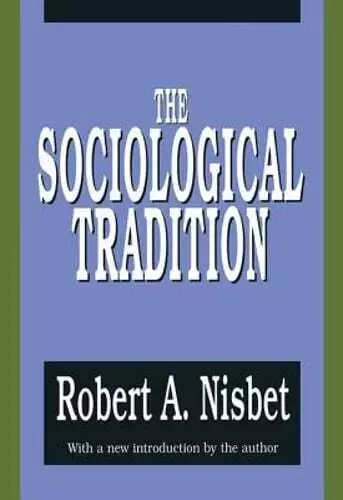
Professor: Jean Eddy Saint Paul, Ph. D.
Office: William James Hall, rm 3501
Office Hours in person: Mon and Wed, 10am to 10:45am
Office Hours on zoom: email me to set up
University Email: [email protected]
"In practice, social scientists can accept the prevailing nation-state or bureaucratic-capitalistic morality or they can resist this morality by making a commitment to social justice and human rights.” -- Joe Feagin, 2001, “Social Justice and Sociology. Agendas for the Twenty-First Century: Presidential Address,” American Sociological Review, Vol. 66, No. 1, p. 12.
Sociology is a fascinating, complex, and problematic scientific discipline to cope with both in teaching and research. Fascinating, because the sociological worker has that unique ability to rely on any social phenomenon of everyday life, and to build sophisticated theories capable of explaining or interpreting the social reality in different settings. Sociology can be labeled as both a humanistic and social science [1] that attempts to explicate the fragmented social reality at its deepest and highest level [2].Sociology is a fascinating, complex, and problematic scientific discipline to cope with both in teaching and research. Fascinating, because the sociological worker has that unique ability to rely on any social phenomenon of everyday life, and to build sophisticated theories capable of explaining or interpreting the social reality in different settings. Sociology can be labeled as both a humanistic and social science [1] that attempts to explicate the fragmented social reality at its deepest and highest level [2].
Sociology’s complexity is linked to its intellectual vocation, since it was institutionalized by white male European scholars, in the context of a Western modernity anchored in racialized capitalism. From pioneering figures like – Claude Henri Comte de St. Simon, to Auguste Comte, to contemporary theorists, sociology has been considered as the science of society. Now then, the concept of society alludes to a complex web of social interactions made of all sorts of ‘communications’, discourses, ideologies, and practices [3]. Moreover, sociology is a social science specialized in the study of social facts and social actions [4].

In his book, The Sociological Tradition, published in 1966, the U.S. sociologist Robert A. Nisbet argued that “the theoretical and methodological tools of sociology are indispensable to understand modernity across and beyond Europe.” As a scientific discipline, with its rules and research methods, it was born in the context of Revolutions, such as: The Industrial Revolution, the American Revolution, the French Revolution, and the Haitian Revolution. However, since its inception, there have been certain events like the Industrial and the French Revolutions that have been treated as hegemonic, while others have been marginally addressed or, worse, silenced in the mainstream sociological literature. For example, the 1790-1804 Haitian Revolution, in the whole history of Western modernity, was the most disruptive event that activated and exposed at its deepest level the social contradictions of a modernity coupled with slavery and racism; however, it has been silenced in the mainstream sociological literature. In this course of Introduction to sociology, this problem (pathology) will be addressed from a critical standpoint.
Both the teaching, and research in sociology, from the beginning of the discipline, have been shaped by colonial and imperialist epistemologies. White supremacy, racism and anti-blackness have always molded the ontological foundation and development of sociology. Also, it is relevant to notice that many of the founding fathers, such as Comte, Le Play and Durkheim were conservators’ thinkers who lamented the way that the Industrial and French Revolutions greatly contributed to social disintegration; hence, from that perspective, sociology was born as a science to stabilize the state and its institutions, instead of a revolutionary discipline [5]. To what extent can sociology be used to scrutinize new forms of social disintegration in the XXI century is a question that interests us?
This course, SOCY 1101 provides to class participants the theoretical and methodological tools that are fundamental to access to the basic knowledge in the field; and familiarize them with some key concepts that are useful to not only understand this course, but also to navigate further courses such as Classical Social Theory, Contemporary Social Theory, and Research Methods 1
Lets begin. Go to Themes →
- [1] Hans Zetterberg. On Theory and Verification in Sociology. New Jersey: Bedminster Press, 1954.
- [2] Nicholas S. Timasheff. Sociological Theory: Its Nature and Growth. Garden City, NY: Doubleday and Company, 1955/1976.
- [3] Jürgen Habermas. The Theory of Communicative Action. Volume 1. Reason and Rationalization of Society. Boston: Beacon Press, 1984; Niklas Luhmann. Theory of Society. Volume 1. Translated by Rhodes Barrett. Stanford, CA: Stanford University Press, 2012.
- [4] Émile Durkheim. The Rules of Sociological Methods. Edited with an Introduction by Steven Lukes (pdf). Translated by W. D. Halls. New York: The Free Press, 1982. Originally published in 1895; Max Weber. Economy and Society: An Outline of Interpretive Sociology. New York, NY: Bedminster Press, 1968.
- [5] Theodor W. Adorno. Introduction to Sociology. Stanford, CA: Stanford University Press, 2000. First published in German as Einleitung in die Soziologie, Suhrkamp Verlag, 1993; Robert A. Nisbet. The Sociological Tradition. New York: Basic Books, 1966.

